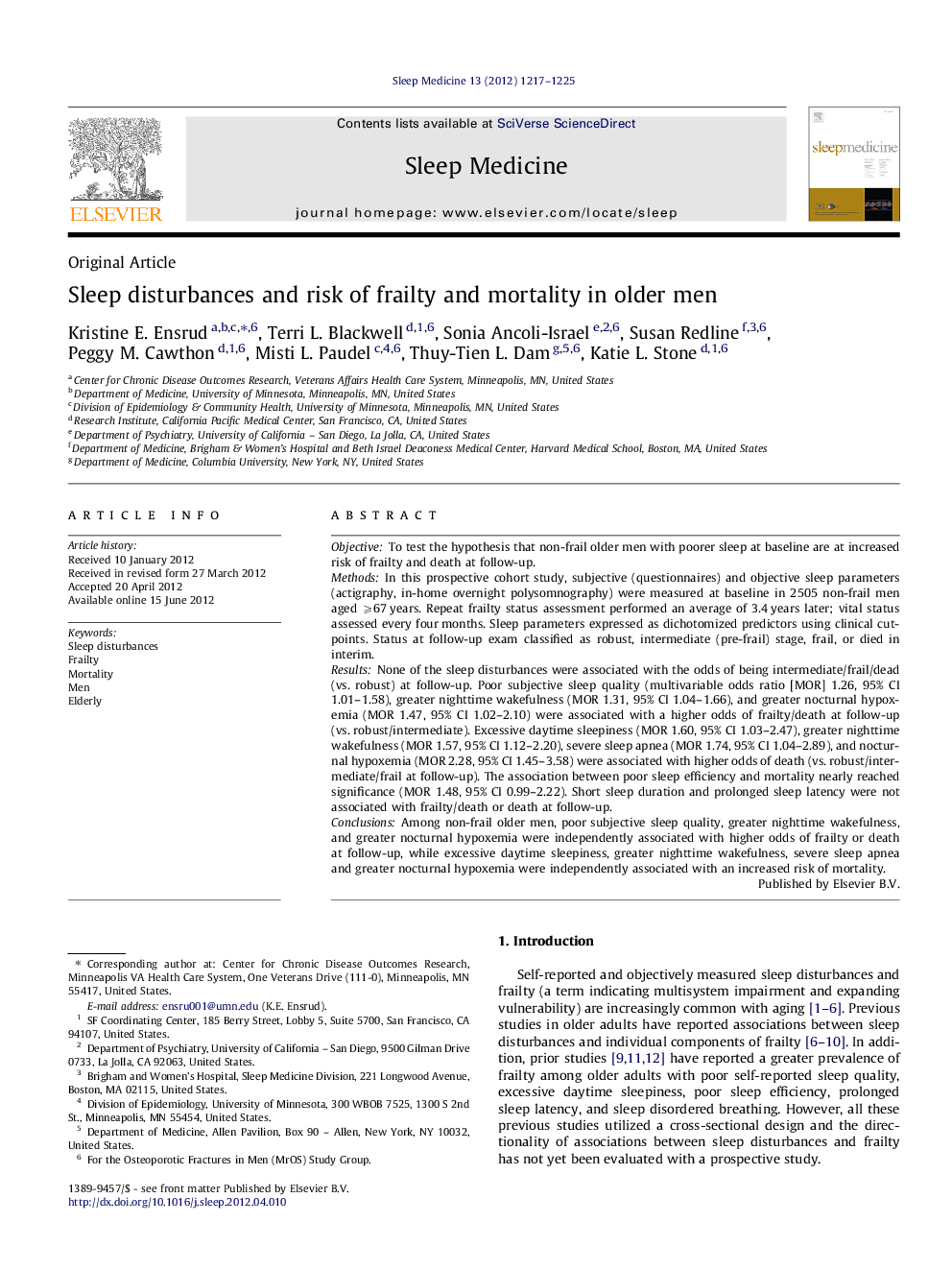| کد مقاله | کد نشریه | سال انتشار | مقاله انگلیسی | نسخه تمام متن |
|---|---|---|---|---|
| 3176212 | 1200251 | 2012 | 9 صفحه PDF | دانلود رایگان |

ObjectiveTo test the hypothesis that non-frail older men with poorer sleep at baseline are at increased risk of frailty and death at follow-up.MethodsIn this prospective cohort study, subjective (questionnaires) and objective sleep parameters (actigraphy, in-home overnight polysomnography) were measured at baseline in 2505 non-frail men aged ⩾67 years. Repeat frailty status assessment performed an average of 3.4 years later; vital status assessed every four months. Sleep parameters expressed as dichotomized predictors using clinical cut-points. Status at follow-up exam classified as robust, intermediate (pre-frail) stage, frail, or died in interim.ResultsNone of the sleep disturbances were associated with the odds of being intermediate/frail/dead (vs. robust) at follow-up. Poor subjective sleep quality (multivariable odds ratio [MOR] 1.26, 95% CI 1.01–1.58), greater nighttime wakefulness (MOR 1.31, 95% CI 1.04–1.66), and greater nocturnal hypoxemia (MOR 1.47, 95% CI 1.02–2.10) were associated with a higher odds of frailty/death at follow-up (vs. robust/intermediate). Excessive daytime sleepiness (MOR 1.60, 95% CI 1.03–2.47), greater nighttime wakefulness (MOR 1.57, 95% CI 1.12–2.20), severe sleep apnea (MOR 1.74, 95% CI 1.04–2.89), and nocturnal hypoxemia (MOR 2.28, 95% CI 1.45–3.58) were associated with higher odds of death (vs. robust/intermediate/frail at follow-up). The association between poor sleep efficiency and mortality nearly reached significance (MOR 1.48, 95% CI 0.99–2.22). Short sleep duration and prolonged sleep latency were not associated with frailty/death or death at follow-up.ConclusionsAmong non-frail older men, poor subjective sleep quality, greater nighttime wakefulness, and greater nocturnal hypoxemia were independently associated with higher odds of frailty or death at follow-up, while excessive daytime sleepiness, greater nighttime wakefulness, severe sleep apnea and greater nocturnal hypoxemia were independently associated with an increased risk of mortality.
Journal: Sleep Medicine - Volume 13, Issue 10, December 2012, Pages 1217–1225